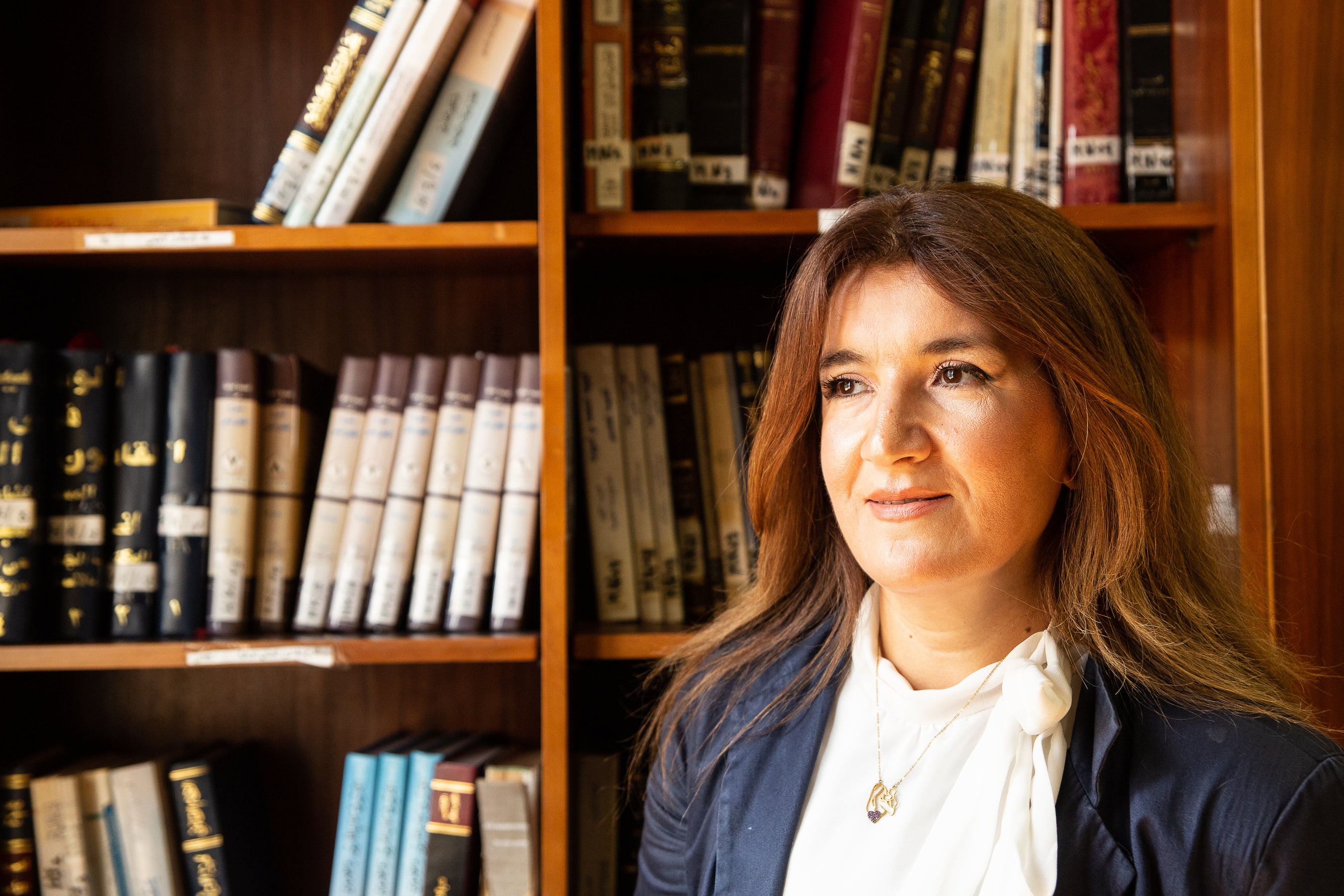In the words of Faizah Balleh: “We need more laws endorsed that protect human rights and gender equality”
Date:

Faizah Balleh is an appeal attorney working with the Head of the Tripoli Bar Association, Lawyer Marie-Thérése Al Kawal. With over 20 years of experience in law and the judiciary, Faizah has committed herself to advocating for rules and regulations that better serve women and girls in Lebanon.
Faizah is one of 115 lawyers supported by UN Women under its ‘Strengthening legal aid and access to justice in Lebanon’ project, undertaken jointly with the United Nations Development Programme and funded through the Government of the Kingdom of the Netherlands. The project seeks to ensure access to justice for the most vulnerable women through increased awareness of their rights, and use of fair and effective formal and informal justice systems. Faizah currently provides free legal advice and support to lawyers working on cases involving women and girls in Tripoli and its surroundings.
![]()
Practicing law as a woman can be challenging because women often need to prove their competency to gain trust, while men are trusted blindly just for being men. I have noticed that female lawyers need more time to prove their worth to others around them and often work harder in any case they receive to establish themselves and reach the place they deserve.
When it comes to sexual harassment and gender-based violence cases a lot of women often prefer to hire female lawyers because they presume that male lawyers might either shame them, not believe them or take advantage of them. Many of the women I have worked with frequently tell me that female lawyers are better at talking to them and know which words to use when addressing these issues. It is important for lawyers dealing with survivors to use the right language to avoid shaming their clients or triggering trauma.
As part of the “Strengthening legal aid and access to justice in Lebanon” Project, I consulted on several cases as we regularly support women and girls living in Tripoli who are reporting gender-based violence cases, as well as cases with economic, financial, and sociological implications. The devastating economic crisis in Lebanon has made it almost impossible for many people residing in Tripoli to make ends meet, including paying rent and accommodation. A few months ago, a widower who is raising her children, came to us scared and desperate because her landlord threatened her with eviction for not paying her rent, which he had increased unilaterally.
Lebanon’s rental law gives rights to tenants over owners and entails the prices to remain as initially agreed in the contract if the contract has been established before 1992. However, for contracts established after 1992, like the widow’s contract, landlords can change rent prices every three years and have the right to evict tenants if given notice two months prior. Moreover, the COVID-19 pandemic and the economic challenges have extended additional privileges to tenants, and therefore this woman’s landlord could not raise her rent, even if her contract had lapsed. The Tripoli Bar Association provided legal support to her, and she and her children remain in their house, avoiding eviction, for the same rental amount agreed in the initial contract. The woman was able to confront the landlord legally, became stronger, and more aware of her rights and in parallel, he could not take her for granted or frighten her with what he is not entitled to.
Article 7 of the Lebanese constitution acknowledges human rights and does not discriminate between men and women. However, the right law in the wrong hand can lead to an unjust ruling that would discriminate against some people based on gender, culture, or religious background. In Lebanon, the political structures, culture, and customs play a significant role in the implementation of laws. For example, in theory, there is no reason a woman can’t become the Head of State but due to how the laws are implemented, a woman in such a position seems hard to imagine.
Having in-depth knowledge of the international treaties and agreements that Lebanon has signed on to and adopted helped me in defending women’s rights issues in court and legal assemblies. In particular, lawyers, judges, and legislators should be more aware of international treaties and agreements such as the Convention on the Elimination of All Forms of Discrimination Against Women (CEDAW) and the Beijing Declaration and Platform for Action when fighting to pass legislation or while working on a case. Even though some of these agreed documents are not mandatory, Lebanon has agreed to them and therefore must abide by them.
Many of Lebanon’s laws need amendments if they are to align with human rights standards. I believe that achieving more justice for women and girls is only possible by committing to endorse new laws more closely aligned with human rights and gender equality principles. Then we would be better able to protect human rights regardless of gender, ethnicity, or socio-economic background."
Launched in June 2020, the ‘Strengthening Legal Aid and Access to Justice in Lebanon’ project has facilitated the access of 163 marginalized Lebanese and non-Lebanese women to justice. They were provided with legal support and services related to the personal status laws, gender-based violence and other gender-related issues.
The UN Women project is implemented in partnership with the Tripoli Bar Association with the generous fund from the Government of Netherlands.